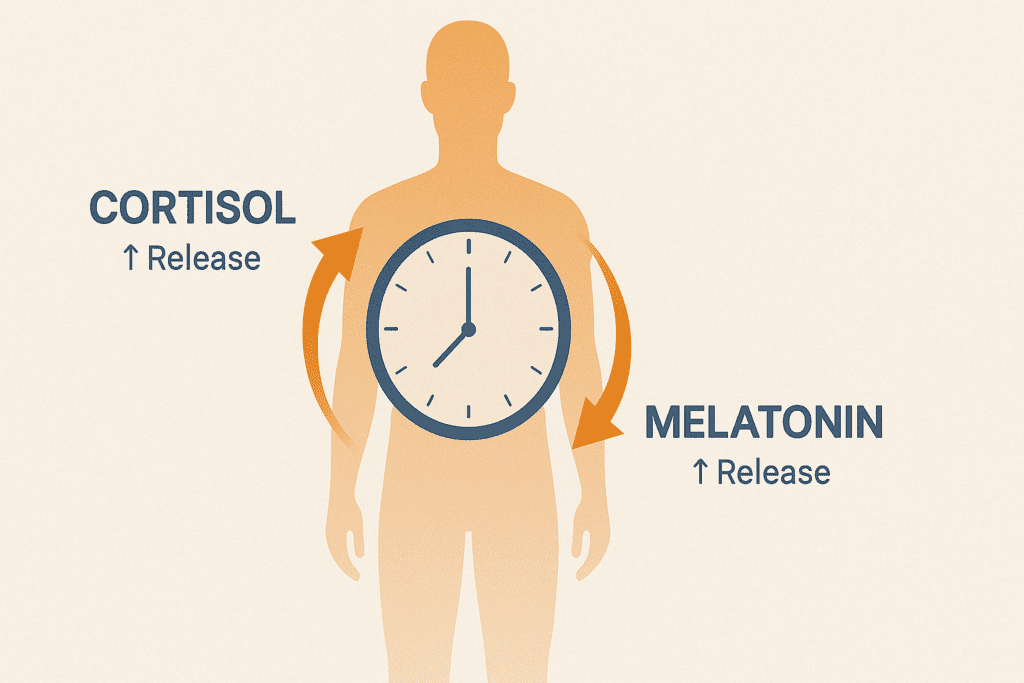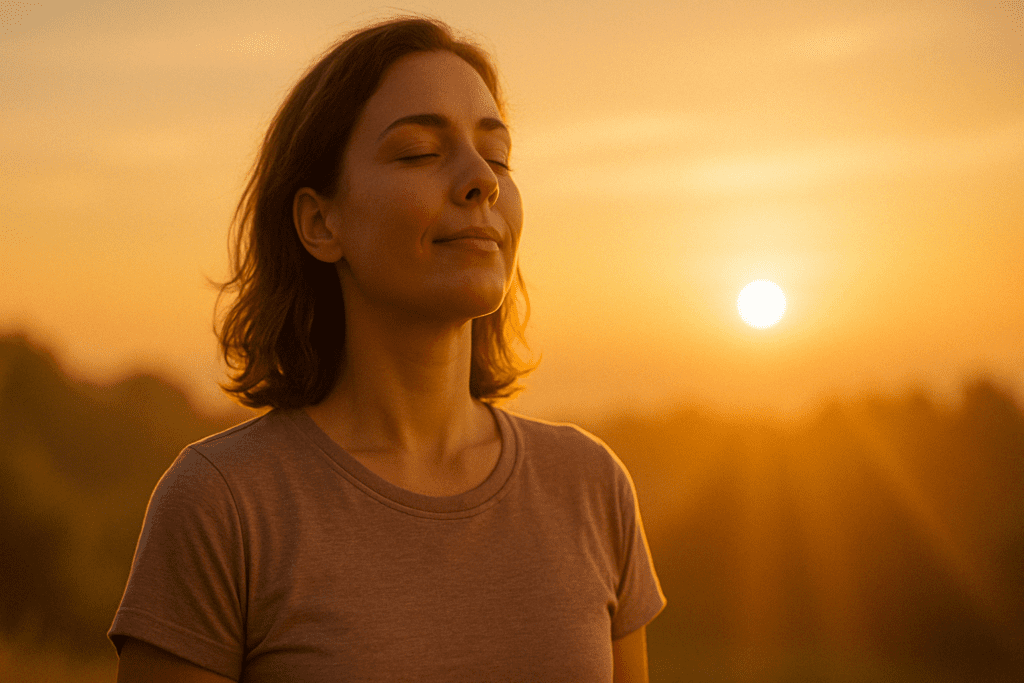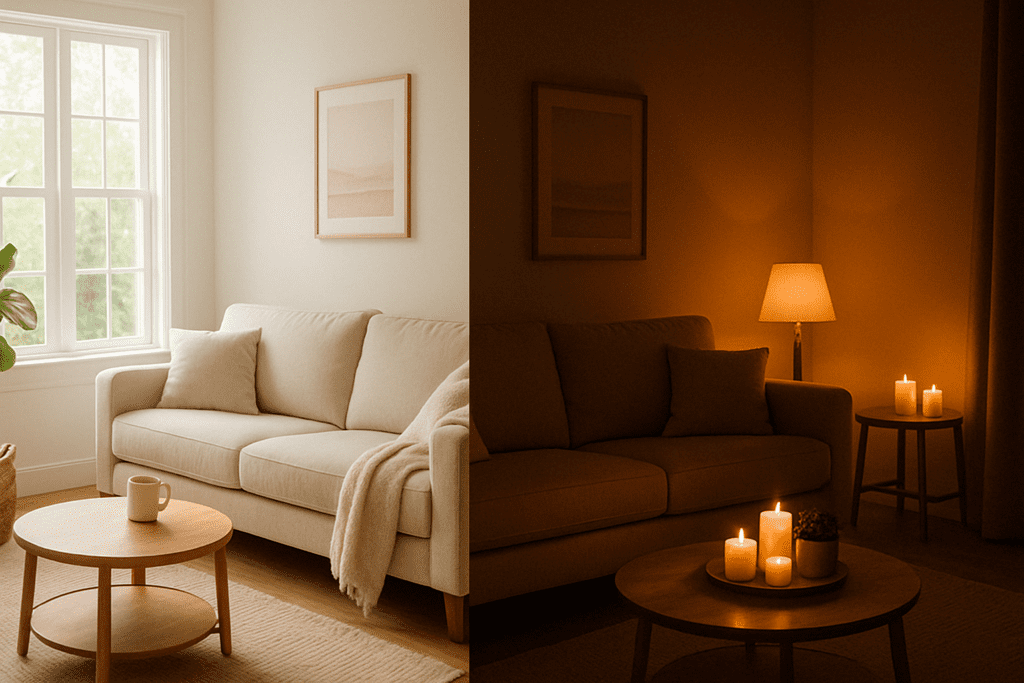New Huberman Lab Podcast: Light Exposure & Circadian Rhythm Science for Optimal Health

Why Your Body’s “Internal Clock” Matters More Than You Think
Every cell in your body runs on a 24-hour cycle called your circadian rhythm. Think of it as an internal clock that governs when you feel alert, hungry, sleepy, or energized. But here’s the catch: this clock doesn’t run on autopilot. It syncs with your environment—and light is its most powerful cue.
In the latest Huberman Lab podcast, Dr. Andrew Huberman breaks down how small tweaks to your light exposure can radically improve sleep, mood, and long-term health.
Light: The Invisible Director of Your Daily Rhythm
Your eyes don’t just help you see—they also send signals to your brain about when to release hormones like cortisol (for energy) and melatonin (for sleep).
Morning Light: Your Daily Reset Button
Natural sunlight within the first hour of waking is like hitting “refresh” on your internal clock. Even 5–10 minutes outdoors (or 20–30 minutes on cloudy days) helps:
– Boost daytime alertness
– Improve nighttime sleep quality
– Sharpen focus and mood

Skip the sunglasses during this time—bright light triggers the release of cortisol, which prepares your body for the day.
The Dark Side of Nighttime Light
After sunset, artificial light—especially from phones, computers, and LEDs—can trick your brain into thinking it’s daytime. This delays melatonin production, making it harder to fall asleep. Dr. Huberman suggests:
– Dim lights 2–3 hours before bed
– Use blue-light-blocking glasses
– Swap overhead lights for warm, low lamps
Practical Tips for Optimizing Light Exposure
– Weekdays vs. weekends: Keep a consistent light schedule to avoid “social jetlag.”
– Night owls: Gradually shift wake-up time earlier with morning light exposure.
– Shift workers: Mimic natural light patterns with bright artificial light during work hours and blackout curtains for sleep.

Small Changes, Big Health Rewards
Aligning your light habits with your circadian rhythm isn’t just about better sleep. Over time, it can:
– Strengthen your immune system
– Reduce risk of chronic diseases like diabetes
– Improve mental clarity and emotional resilience
Final Thoughts
Your circadian rhythm is a hidden lever for health. By mastering light exposure—seeking bright mornings and embracing dark evenings—you can unlock sharper focus, deeper rest, and a body that thrives. Science doesn’t have to be complicated; sometimes, the solution is as simple as stepping outside.
Original podcast source: https://www.hubermanlab.com/topics/light-exposure-and-circadian-rhythm



